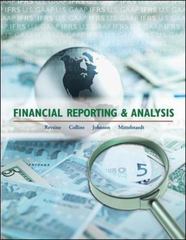Question
Recall that in our common pool resource game, groups of n (typically 3) players share a resource where the size, f (fish), is not known.
Recall that in our common pool resource game, groups of n (typically 3) players share a resource where
the size, f(fish), is not known. Each group member j attempts to catch cj units of fish.
Decisions are made independently and anonymously. If (c1 + c2 + c3 < f), there is enough fish and each
group member receives profit equal to their attempted catch; Otherwise the resource is destroyed and all
group members get nothing. For all group sizes the number of fish is a random variable drawn from a
uniform distribution over support [0, 20n]. Expected profits for individual j are equal to their attempted
catch cj times the probability that there are enough sh P(c1+ c2 + c3 < f)
E[profitj ] = cjP(c1 + c2 + c3 < f) = cj*(20n - c1 - c2 - c3)/20n
(a) What is the equilibrium prediction for catch size for a group of size 3?
(b)what is the socially optimal total catch size?
(c)partition the data by variable "rematching" and calculate the average "choice" (catch size)
Step by Step Solution
There are 3 Steps involved in it
Step: 1

Get Instant Access to Expert-Tailored Solutions
See step-by-step solutions with expert insights and AI powered tools for academic success
Step: 2

Step: 3

Ace Your Homework with AI
Get the answers you need in no time with our AI-driven, step-by-step assistance
Get Started


